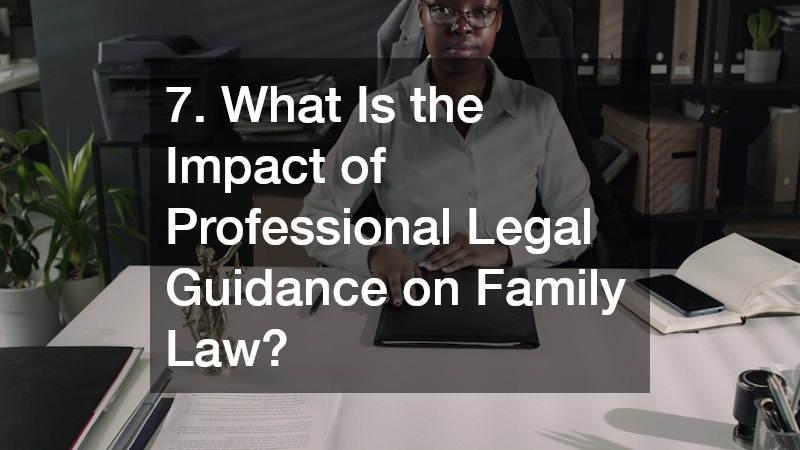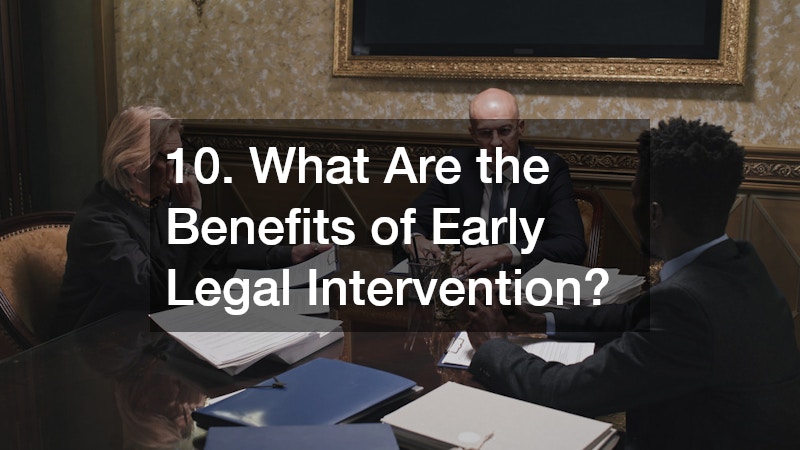In today’s complex world, understanding your legal rights is more important than ever. Whether you’re facing a dispute, drafting a contract, or simply navigating an unfamiliar legal situation, professional guidance can make the difference between a successful resolution and a costly mistake. Legal systems are intricate, with countless statutes, precedents, and procedures that can overwhelm even the most informed individuals. This is where professional legal advice becomes invaluable.
Seeking guidance from a qualified attorney helps you make informed decisions, protect your interests, and avoid unnecessary complications. Lawyers are not just experts in the law—they are advocates, negotiators, and problem solvers who help individuals and businesses uphold their rights while minimizing risks.
This guide explores the many ways professional legal assistance can support you across different situations. From foreclosure defense and family disputes to criminal cases and business law, each section reveals how the right legal professional can guide you through challenges with clarity and confidence. Understanding when and why to seek legal help empowers you to take control of your situation and ensures that your rights remain protected, no matter the circumstances.
1. Why Is Legal Advice Important?

Legal advice is the foundation of protecting your rights and making informed choices. When facing legal issues, many people hesitate to contact a lawyer—often due to fear of high costs or the belief they can handle matters alone. However, without expert input, individuals risk making decisions that have long-term financial or personal consequences.
For instance, homeowners dealing with property loss or debt collection should immediately seek foreclosure defense guidance. A skilled attorney can explain your rights, explore available options such as loan modifications or repayment plans, and help negotiate with lenders. Acting quickly can prevent irreversible outcomes, such as losing your home or damaging your credit.
Beyond financial matters, legal advice ensures that every action you take complies with local laws and protects your interests. Whether signing a lease, purchasing property, or entering a business partnership, understanding the legal implications beforehand can save you from costly mistakes.
Ultimately, legal advice empowers individuals to act with confidence. It transforms complex language and procedures into actionable strategies that safeguard your assets, reputation, and peace of mind.
2. How to Choose the Right Legal Professional?
Choosing the right lawyer is one of the most critical steps in ensuring effective representation. Not all attorneys specialize in the same areas of law, so selecting one aligned with your specific needs can greatly influence your outcome.
If you’re dealing with disability claims or appeals, working with a local disability lawyer is essential. These professionals understand regional regulations, medical evidence requirements, and filing deadlines unique to your jurisdiction. Their expertise can help secure benefits that may otherwise be denied due to procedural errors or incomplete documentation.
When evaluating potential attorneys, consider their experience, communication style, and reputation. A good lawyer should explain your options clearly, keep you informed throughout the process, and demonstrate empathy for your situation. Reviews, testimonials, and consultations can also offer insight into their professionalism and effectiveness.
Another factor to consider is accessibility. Having a local attorney allows for more direct communication and personalized service. Whether it’s disability law, real estate, or family matters, the right professional combines knowledge, trust, and compassion—ensuring that your legal needs are handled efficiently and ethically.
3. What Role Does a Lawyer Play in Legal Disputes?
When disputes arise, emotions often run high, and missteps can lead to irreversible outcomes. A qualified lawyer serves as both your advocate and your guide, helping you navigate the complexities of legal proceedings with confidence.
For example, in family disputes, a divorce attorney plays an essential role in protecting your rights and achieving a fair outcome. They help manage sensitive issues like property division, spousal support, and custody arrangements while ensuring that legal procedures are followed correctly.
Beyond family law, lawyers act as mediators and negotiators in civil and commercial disputes. They gather evidence, draft legal arguments, and represent clients in negotiations or court hearings. Their objectivity allows them to provide strategic advice that’s often difficult for emotionally involved parties to consider.
In any dispute, having a legal professional ensures that deadlines are met, filings are accurate, and your side is effectively represented. This level of organization and advocacy often leads to faster, more favorable resolutions—saving both time and stress in the long run.
4. How Can Legal Professionals Assist in Contractual Agreements?

Contracts are the backbone of both personal and professional relationships. Yet, misunderstandings or poorly drafted agreements are among the most common causes of disputes. Legal professionals ensure that all parties understand the terms and that the contract complies with current laws.
For instance, in matters like child custody law, agreements must be carefully structured to reflect the best interests of the child while maintaining fairness for both parents. Attorneys help draft, review, and enforce such agreements to prevent future conflicts.
In business or employment settings, legal experts identify loopholes, ambiguous clauses, or hidden obligations that could lead to financial or legal issues later. They also help negotiate favorable terms, ensuring all parties’ responsibilities are clearly defined.
Ultimately, consulting an attorney before signing any contract can save you from unexpected liabilities or disputes. Legal professionals not only draft and interpret agreements but also provide guidance that ensures your decisions are informed and legally sound.
5. What Are Common Misconceptions About Legal Services?
Many people avoid seeking legal help due to misconceptions about lawyers and their services. Understanding these myths is the first step toward getting the support you need.
One of the biggest misconceptions is that legal help is only for the wealthy. In reality, many law firms and car accident lawyers offer free consultations or contingency-based services, meaning clients only pay if they win their case. This makes quality representation accessible to individuals across all income levels.
Another myth is that lawyers unnecessarily complicate matters. In truth, attorneys simplify legal processes by managing paperwork, interpreting laws, and handling communication with opposing parties. Their goal is to protect clients, not overwhelm them.
Lastly, some believe that hiring a lawyer guarantees immediate results. While legal professionals provide expertise and guidance, outcomes depend on facts, evidence, and applicable laws. The real value of legal services lies in protecting your rights and ensuring the best possible resolution—not in making unrealistic promises.
6. How Do Lawyers Assist in Criminal Defense?
Facing criminal charges can be one of the most stressful experiences in a person’s life. In these situations, the guidance of a skilled defense lawyer is crucial to ensure your rights are upheld.
Experienced attorneys analyze every aspect of a case—from police reports and witness statements to evidence handling. They identify procedural errors or violations that could affect the outcome, such as unlawful searches or mishandled evidence. Without proper representation, defendants risk harsher penalties or wrongful convictions.
Even outside criminal law, attorneys like will attorneys help individuals protect their rights through planning and documentation. Drafting a will or estate plan ensures your wishes are honored and your loved ones are cared for in accordance with the law.
Criminal defense lawyers, however, play a particularly vital role. They negotiate plea deals, represent clients in court, and work tirelessly to reduce or dismiss charges. Their expertise ensures that every person receives fair treatment and that the justice system functions as it should—based on facts and rights, not assumptions or fear.
7. What Is the Impact of Professional Legal Guidance on Family Law?

Family law involves some of the most emotionally charged and life-altering cases, from divorce and custody to adoption and guardianship. Having professional legal support during these times can make the process less overwhelming and more equitable.
A knowledgeable personal injury law firm may not handle family disputes directly, but many full-service law offices include family lawyers who provide compassionate and strategic representation. They ensure that all legal requirements are met while advocating for your rights and well-being.
In divorce and custody cases, attorneys help draft fair agreements, mediate discussions, and represent clients in court when necessary. They also assist with enforcement or modification of existing orders if circumstances change.
Family lawyers also play a preventive role—helping clients create prenuptial or postnuptial agreements, guardianship arrangements, and estate plans that reduce potential conflicts. Professional legal guidance ensures decisions are made objectively, fairly, and with long-term stability in mind.
8. How Can Legal Experts Assist in Personal Injury Cases?
When accidents happen, victims often face physical pain, emotional distress, and financial hardship. In these moments, having a legal professional by your side is essential.
Injury attorneys specialize in helping victims recover compensation for medical expenses, lost wages, and emotional suffering. They handle negotiations with insurance companies, gather evidence, and ensure that clients aren’t pressured into unfair settlements. Without proper representation, victims often underestimate their claims or struggle to prove negligence.
In addition to financial compensation, personal injury lawyers advocate for accountability—ensuring that responsible parties are held legally liable for their actions. Whether it’s a car crash, workplace injury, or slip-and-fall accident, these professionals provide the expertise needed to navigate complex legal processes efficiently.
Many injury lawyers operate on a contingency basis, so clients only pay if they win their case. This makes it easier for anyone to access justice without worrying about upfront legal costs. In the end, legal representation provides not only financial recovery but also peace of mind and closure.
9. How Does Legal Guidance Support Business Law?
Running a business involves constant decision-making, and each decision carries potential legal implications. From startup formation to daily operations, having access to sound legal advice can prevent costly mistakes and protect your company’s future. Whether you’re choosing a business structure, signing a lease, or hiring employees, each step has legal requirements that, if overlooked, can lead to significant consequences.
Bankruptcy firms and business lawyers, for example, help entrepreneurs navigate financial distress, debt restructuring, or liquidation while ensuring compliance with state and federal laws. These experts provide critical advice that can help a struggling company recover instead of closing its doors. Early consultation with a legal professional can also reveal opportunities for financial relief, such as negotiating with creditors or restructuring payment plans, before bankruptcy becomes the only option.
Beyond crisis management, business law professionals assist with contract drafting, employment policies, intellectual property protection, and regulatory compliance. They help ensure that your contracts are enforceable, your brand is legally protected, and your company remains in good standing with tax and labor regulations. By establishing clear, lawful procedures from the start, business owners minimize risks, build credibility, and promote long-term success.
Even in smaller ventures, having an attorney available for consultations builds confidence. Whether you’re entering a partnership, acquiring assets, or handling disputes, legal experts ensure your operations run smoothly and ethically—protecting both your reputation and your bottom line. In the long run, maintaining a strong relationship with a trusted legal advisor can be one of the smartest business investments you make.
10. What Are the Benefits of Early Legal Intervention?

One of the most overlooked aspects of protecting your rights is seeking legal advice early. Waiting until a problem escalates can limit your options and increase costs.
Family lawyers and other specialists emphasize the importance of proactive legal planning. For instance, consulting an attorney at the first sign of marital strain, financial trouble, or workplace conflict can help you explore mediation, negotiation, or settlement options before litigation becomes necessary.
Early legal intervention also ensures you understand your rights and obligations from the beginning. This knowledge allows you to make better decisions and avoid actions that might complicate your case. For businesses, early guidance prevents regulatory violations and contract disputes.
In essence, early involvement of a legal professional provides peace of mind. It allows you to act strategically rather than reactively, ensuring that your rights remain fully protected throughout the process.
Understanding your rights is the first step toward protecting your future. Whether you’re facing a personal, financial, or professional challenge, seeking professional legal guidance ensures that every decision you make is informed and compliant with the law.
From foreclosure defense and family law to business and criminal matters, the right attorney can provide clarity, confidence, and effective representation. Legal professionals bridge the gap between complex regulations and practical solutions—empowering you to navigate life’s challenges with security and peace of mind.
By seeking help early and choosing experienced, reputable counsel, you can safeguard your rights, minimize risks, and achieve the best possible outcomes. Legal guidance isn’t just for crises—it’s a proactive investment in your stability, freedom, and future.
